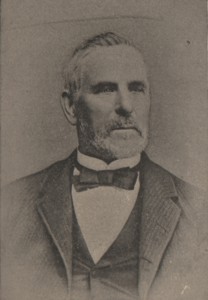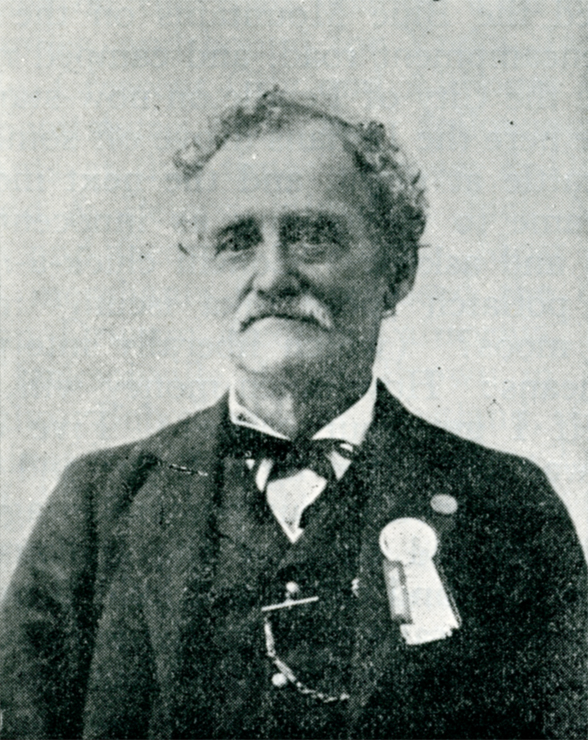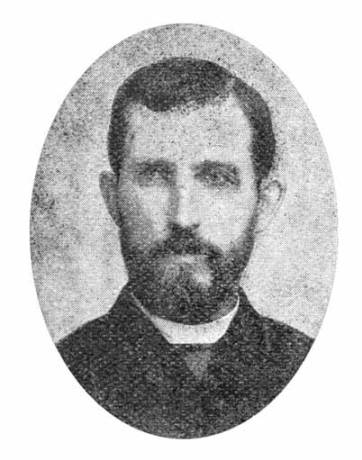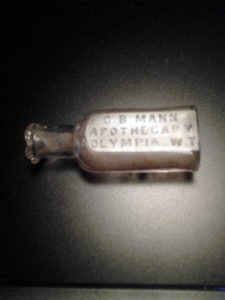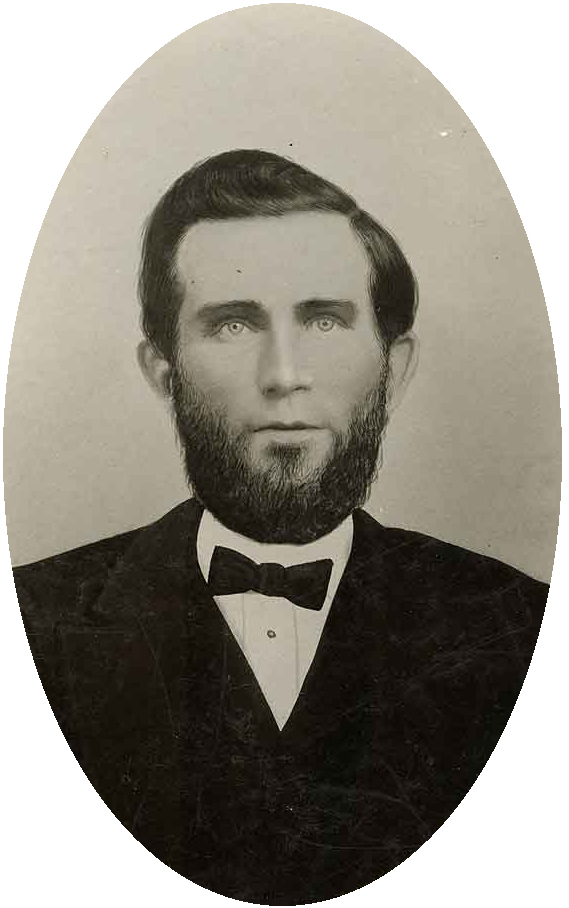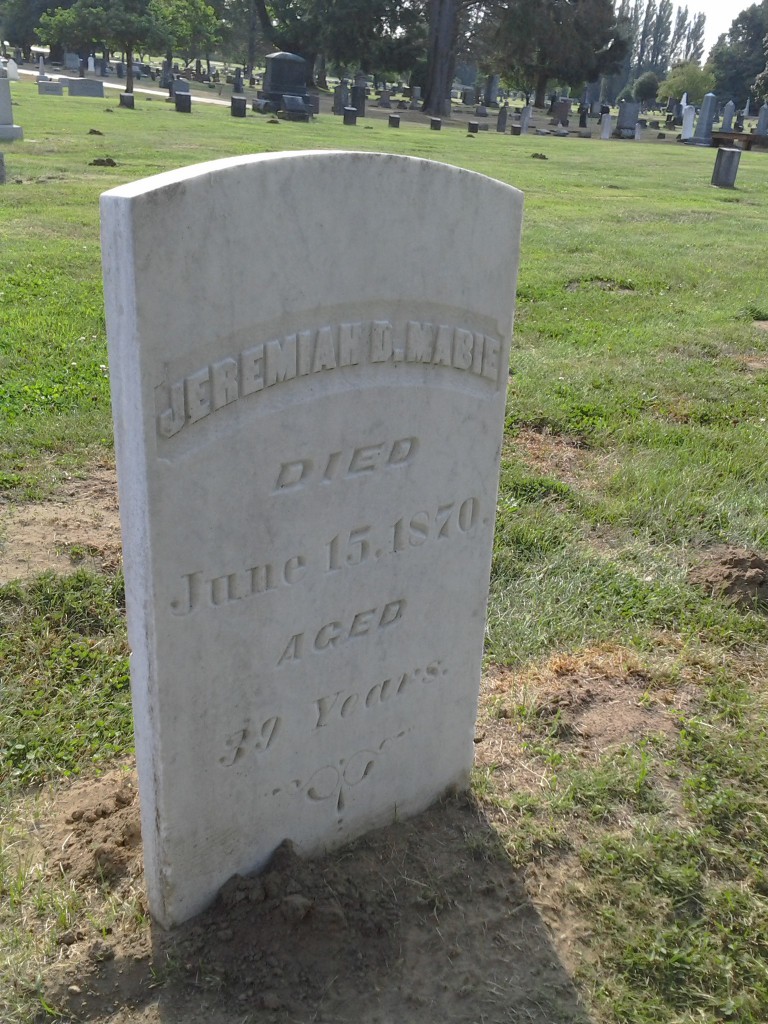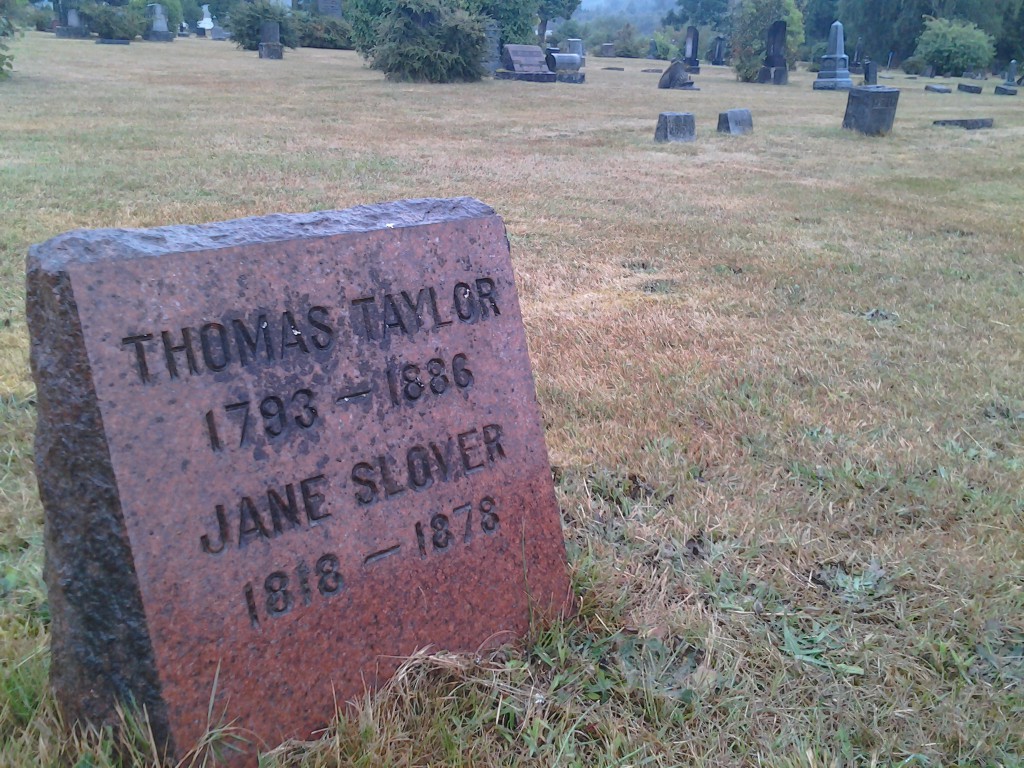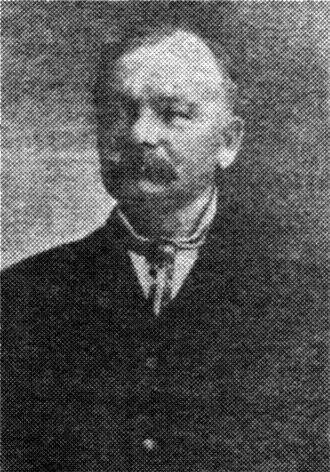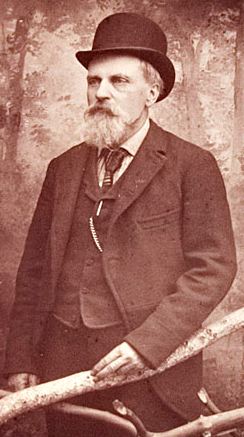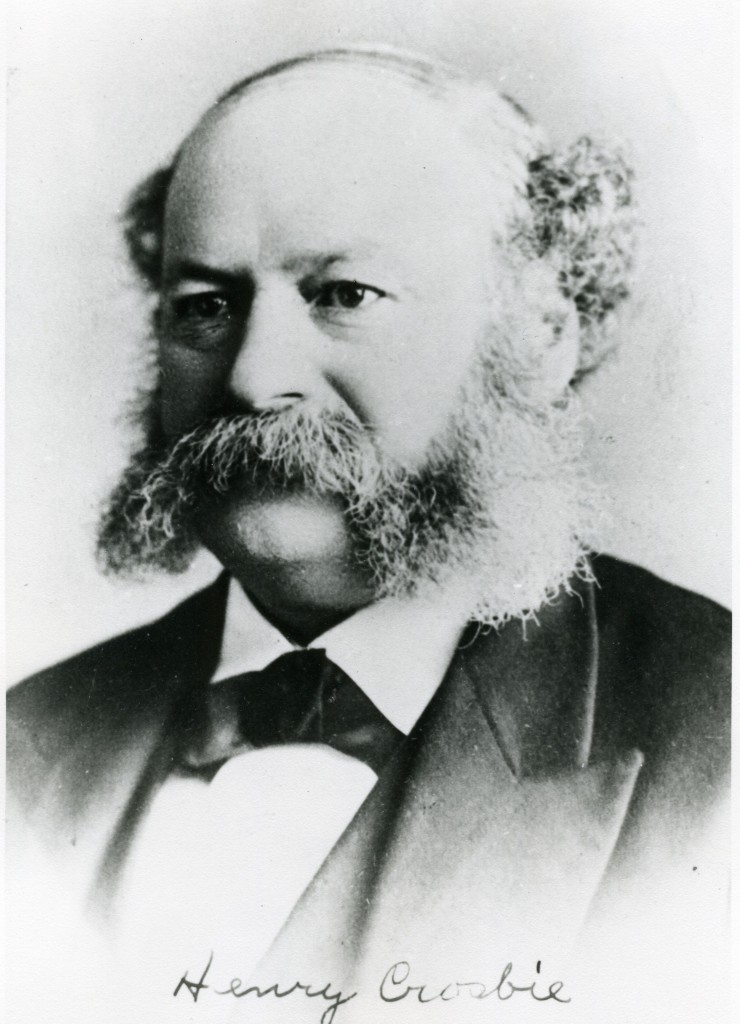From the desk of Sean Lanksbury. PNW & Special Collections Librarian
As the Washington State Library nears its 160th anniversary, the staff here have been reflecting on the movement, growth, and development of the Library’s collections and services from the Territorial up through this modern era – and the impact these factors have had on life of Washingtonians.
Follow us over the next few weeks as we trace the movement of the original Territorial Library Collection, which not only lives on at the Washington State Library, but as a part of the Washington State Law Library at the home of the State Supreme Court, also known as the Temple of Justice. In later months we will focus on the transition of the Territorial Library into the State Library, as Washington State prepares to celebrate 125 years of Washington Statehood.
Introduction: Purchase and Delivery
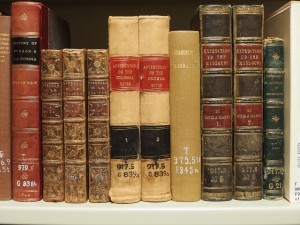 The original books, maps, globes, and miscellaneous materials that made up the original Washington Territorial Library collection were secured using funds appropriated out of the Organic Act of March 2, 1853. This act was signed by President Millard Fillmore and provided $5,000 to the newly appointed Territorial Governor, Isaac I. Stevens, for purchases towards the library. Adjusting for inflation this amount is approximately equivalent to $135,950 in the year 2012. With these funds Stevens purchased books from H. Bailliere of London and C.B. Norton and Co. of New York City; collected archival documents from all the states of the union and made arrangements for the casing and portage of these materials through vendors in New York City, Philadelphia, and Washington D.C.
The original books, maps, globes, and miscellaneous materials that made up the original Washington Territorial Library collection were secured using funds appropriated out of the Organic Act of March 2, 1853. This act was signed by President Millard Fillmore and provided $5,000 to the newly appointed Territorial Governor, Isaac I. Stevens, for purchases towards the library. Adjusting for inflation this amount is approximately equivalent to $135,950 in the year 2012. With these funds Stevens purchased books from H. Bailliere of London and C.B. Norton and Co. of New York City; collected archival documents from all the states of the union and made arrangements for the casing and portage of these materials through vendors in New York City, Philadelphia, and Washington D.C.
The first 2,000 books left New York City on May 21, 1853 on the clipper Invincible. The ship traveled around the Horn of South America to San Francisco, where the books were held briefly by the Port of San Francisco. The collection then traversed the waters from San Francisco to Olympia, arriving October 23, 1853 on the brig Tarquinia packed in “Massachusetts steamer trunks.” Since the day that brig touched shore, the Territorial Library moved quite a few times around Olympia.
1853: G.A. Barnes’ Warehouse*
The first books arrived on Sunday, October 23, 1853, and were stored in an Olympia warehouse owned by G. A. Barnes. George A. Barnes was an eminent pioneer in the city’s history, a member of Olympia’s first Board of Trustees, and the proprietor of its first general mercantile. Barnes also established Barnes’ Hook & Ladder Brigade, the first volunteer fire department, around that same time. Alongside his many other achievements he established Olympia’s first bank, G.A. Barnes & Co., in 1884 [Jones, 337] and served a one-year stint as mayor of Olympia in 1880.
While we are not entirely certain of the exact location of Barnes’ warehouse, sources [Rathbun, pg.17] have placed his mercantile at the west end of what was then called 1st Street (now Thurston Avenue), near Percival Landing on the Olympia waterfront. It is likely that the warehouse was close or next to this mercantile. The books were stored at this warehouse until the arrival of newly appointed Territorial Governor Isaac I. Stevens on Friday the 25th of November. If we are correct in our placement of the location, there is a hotel of modern construction in its place today.
*No picture of Barnes’ warehouse available. If you have an image or leads towards an image of this historic site, please contact us at [email protected]
Circa 11/1853-11/1854: Oblate Mission’s Buildings*
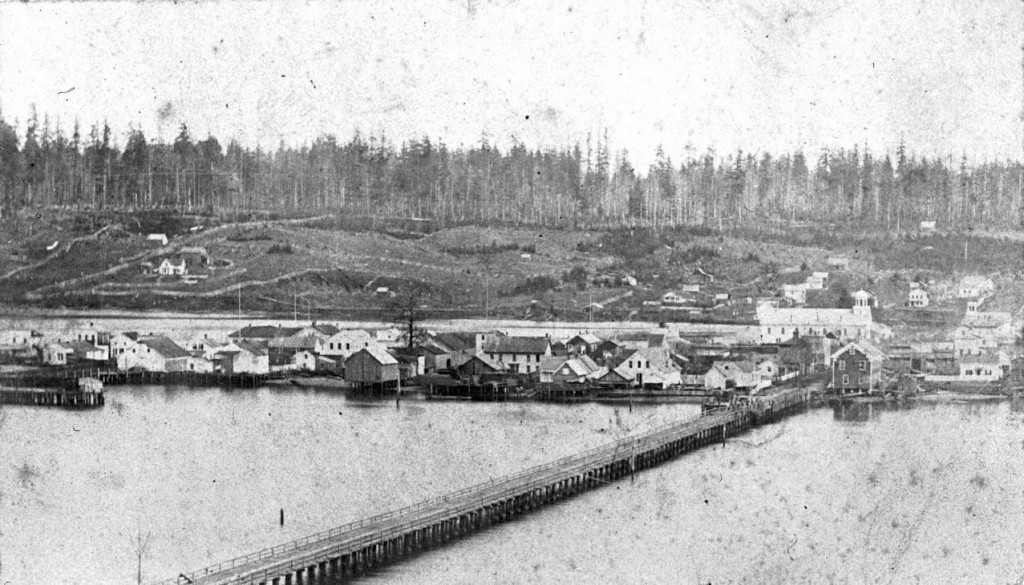
1860s Olympia WT – looking East across Budd Inlet. Bridge is 4th Ave. (Image courtesy of Bigelow House)
Sometime shortly following Stevens’ arrival, the materials were moved – likely to one of the two one-room, one-story buildings on the west side of Main Street between 2nd and 3rd avenues. These buildings, measuring 16 feet by 20 feet, had been rented by Governor Stevens for $900 a year from , a missionary of the Oblates of Mary Immaculate, a monastic Catholic order. One of these buildings was used by the Railroad Commission as it compiled its survey reports for the proposed route for the Northern Pacific Railroad. The other was used by the Stevens family upon their arrival in Washington [Nicandri, pg. 64.]
The first report of Steven’s Territorial Librarian appointee, Benjamin [Bion] Freeman Kendall – appointed February 28, 1854, and elected by the House of Representatives on April 17, 1854 – enumerated 2,130 books (the remaining purchase had arrived) and documents, including the two globes.
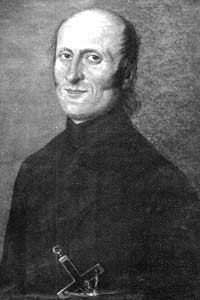
Father Pascal Ricard b.05-16-1805, d.01-09-1862
Father Ricard is best known for his establishment in June 1848 of Saint Joseph’s mission on the east side of Budd Inlet. That land is now preserved as Priest Point State Park. [Ibid, pg. 8] Sensing an Olympia growth boom, Father Tempier of Marseilles had Ricard purchase four lots for the downtown buildings in 1852 or 1853. These lots were the former site of the cabin belonging to Levi Lathrop Smith, Olympia’s co-founder and a tragic figure in Washington territorial history. Ricard did so, and placed the lots in the name of another member of the order, Brother George Blanchet, so as not to appear too land-hungry following his Priest Point purchase. The Oblate’s downtown buildings are long-gone and now the block is home to the Olympia Center, “a public facility open to all members of the community actively participating in programs or meetings.”
*No picture of the Oblate Buildings available. If you have an image or leads towards an image of this historic site, please contact us at [email protected]
Join us next week as the Territorial Collection moves into its first built to suit structure, and first brush with controversy!






